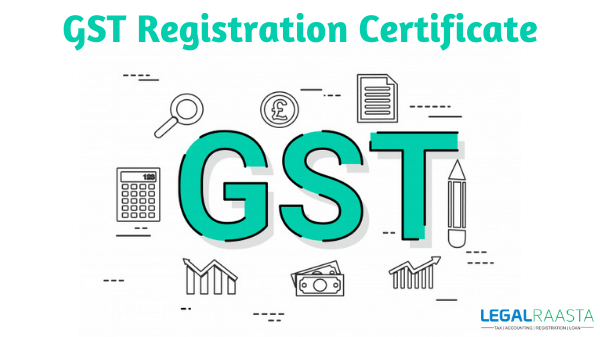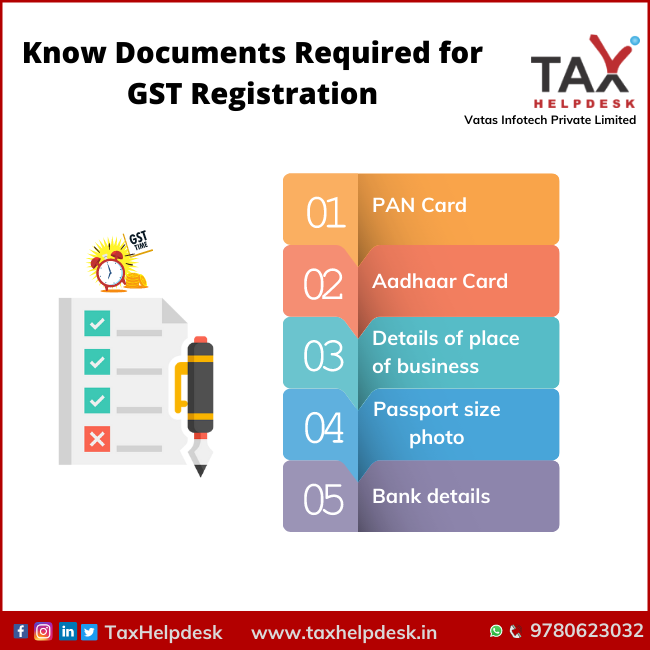Why CFO Account & Services is the Preferred Option for GST Registration in Singapore
Why CFO Account & Services is the Preferred Option for GST Registration in Singapore
Blog Article
Navigating the Complexities of GST Registration: A Comprehensive Overview for Entrpreneurs
Browsing the intricacies of GST enrollment can be a daunting task for several entrepreneur, as it involves a myriad of regulations, laws, and processes that must be stuck to. With the ever-evolving landscape of tax legislations, making certain conformity and understanding the intricacies of GST registration is important for the seamless procedure of any kind of business. From identifying eligibility and collecting the essential paperwork to maximizing procedures for maximum performance, this extensive guide aims to supply company owner with the knowledge and devices required to navigate the complexities of GST enrollment efficiently.
Qualification for GST Registration
Entrepreneur need to meet certain standards to determine their qualification for GST enrollment. As a whole, companies with an annual turnover surpassing a particular limit are required to sign up for Product and Provider Tax Obligation (GST) This limit varies by nation, yet it is important for entrepreneurs to stay notified concerning the specific regulations in their territory. Additionally, services entailed in interstate supplies, shopping, or the provision of particular defined solutions and products might likewise be mandated to sign up for GST, no matter of their turn over.
Moreover, companies that are signed up under any type of previous tax program, such as barrel or service tax obligation, are normally required to transition to GST enrollment. Recognizing these requirements is vital for entrepreneur to make certain conformity with the legislation and stay clear of any type of fines or lawful concerns. It is recommended for entrepreneurs to consult with tax obligation specialists or lawful experts to examine their eligibility for GST registration precisely. By adhering to the necessary requirements, organizations can smoothly browse the complexities of GST enrollment and run lawfully within the tax structure.
Documents Needed for Registration
To complete the GST registration process, organizations need to gather and send an extensive set of records. The vital files needed for GST enrollment commonly include proof of company registration or consolidation such as the Certification of Unification, collaboration act, or any other registration certification.
Additionally, specific records associated to the nature of the service, such as a list of items or services supplied, HSN codes for items, and cavity codes for solutions, may be required - Why choose CFO Account & Services for GST registration in Singapore. It is important for services to guarantee that all files submitted are accurate, up-to-date, and in the prescribed layout to prevent any type of hold-ups or problems in the GST enrollment procedure
Process of GST Registration
Having actually set up the requisite documents, organizations proceed to start the GST registration procedure by engaging with the on-line website marked for registration. This on the internet site is the Goods and Solutions Tax Network (GSTN) portal, which acts as the main system for all GST-related tasks in India. Upon accessing the site, organizations are needed to fill in the GST registration form with exact information concerning their service activities, turnover, and various other pertinent details.
When the form is finished and submitted on the portal, the GSTN validates the details offered by the company. The applicant might be called for to provide additional details or information if any kind of inconsistencies are located. Complying with successful confirmation, a view GST enrollment certificate is released to business entity. This certification contains a special Item and Provider Tax Identification Number (GSTIN) that is made use of for all GST-related deals.
It is vital for services to make certain that the details supplied throughout the GST registration procedure is accurate and up to day to prevent any read this post here potential issues or hold-ups in acquiring the GST enrollment certificate.
Understanding GST Conformity

Services require to be familiar with the numerous GST conformity requirements based upon their turn over, nature of products or solutions, and the states in which they run. It is critical to stay updated on any adjustments in GST regulations and guidelines to avoid any kind of non-compliance problems.
Non-compliance with GST laws can result in substantial fines, fines, and even legal consequences. Companies need to invest time and sources in educating themselves and their team on GST conformity. Seeking specialist aid from tax consultants or specialists can also help in browsing the complexities of GST conformity and ensuring that services operate within the lawful framework.

Tips for Optimizing Service Operations
For enhanced performance and performance in organization procedures, tactical preparation and structured processes are vital parts. One pointer for maximizing business procedures is to leverage innovation effectively.
An additional important facet is focusing on jobs based on their importance and target dates. By creating a clear power structure of tasks and setting sensible timelines, businesses can make sure that vital activities are finished on time. Promoting a society of open interaction and cooperation among group members can lead to boosted effectiveness and advancement.

Conclusion
To conclude, navigating the complexities of GST registration needs a clear understanding of qualification requirements, needed records, registration procedures, and compliance requirements. By adhering to these standards and optimizing company operations, entrepreneur can guarantee smooth operations and compliance with the GST guidelines. It is crucial for organizations to stay educated and updated on GST regulations to prevent any type of charges or lawful concerns.
The essential documents needed for GST enrollment commonly consist of evidence of business enrollment or unification such as the Certification of Consolidation, collaboration deed, or any kind of other registration certification.Having assembled the requisite documentation, businesses continue to start the GST registration procedure by engaging with the online website designated for enrollment. Upon accessing the portal, services are needed to fill out the GST registration kind with exact details concerning their organization activities, turn over, and various other relevant info.
In order to maintain adherence to GST laws and avoid charges, services should focus on comprehending GST conformity. By adhering to these guidelines and maximizing company operations, organization owners can guarantee smooth procedures and compliance with the GST policies.
Report this page